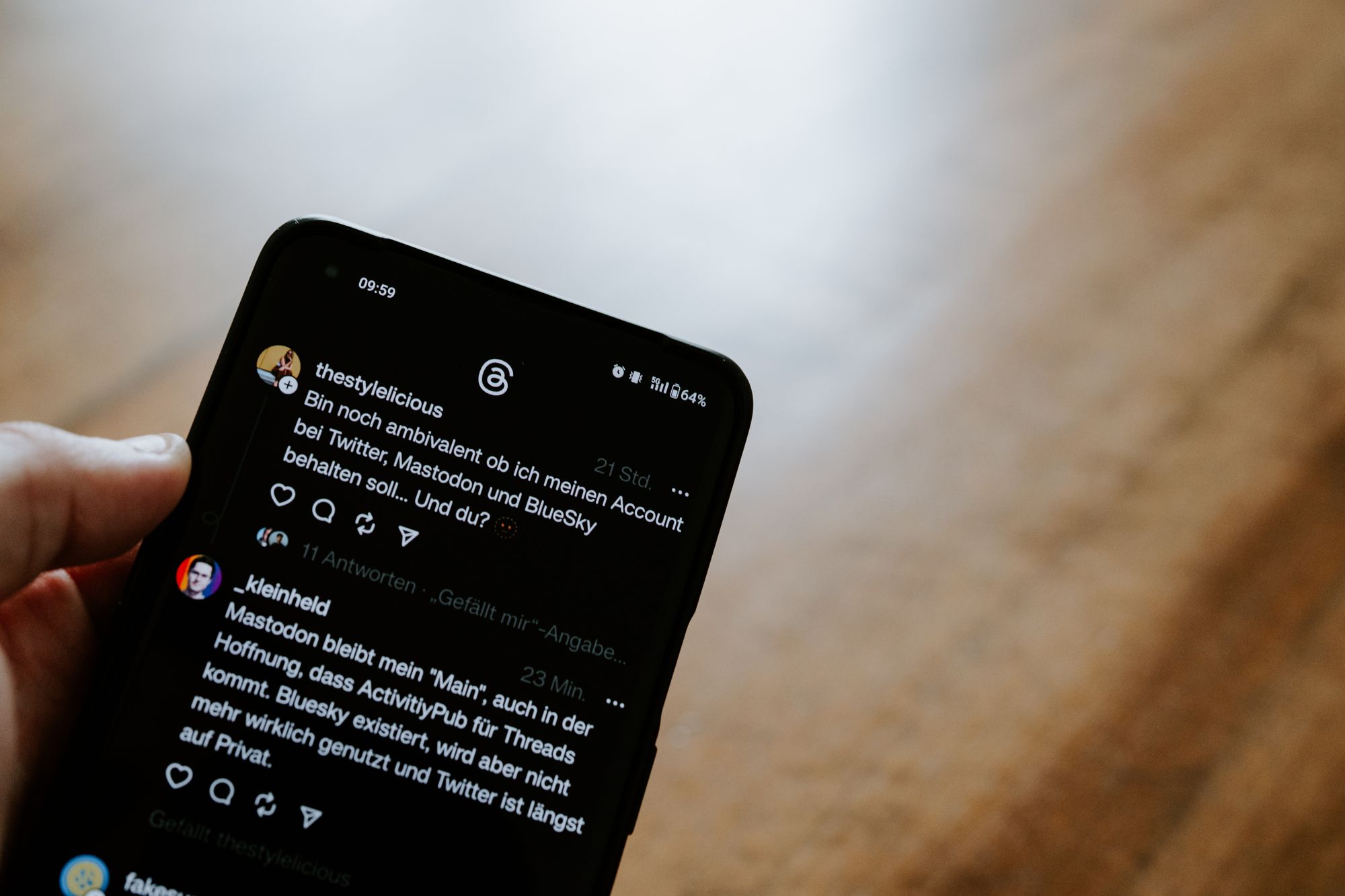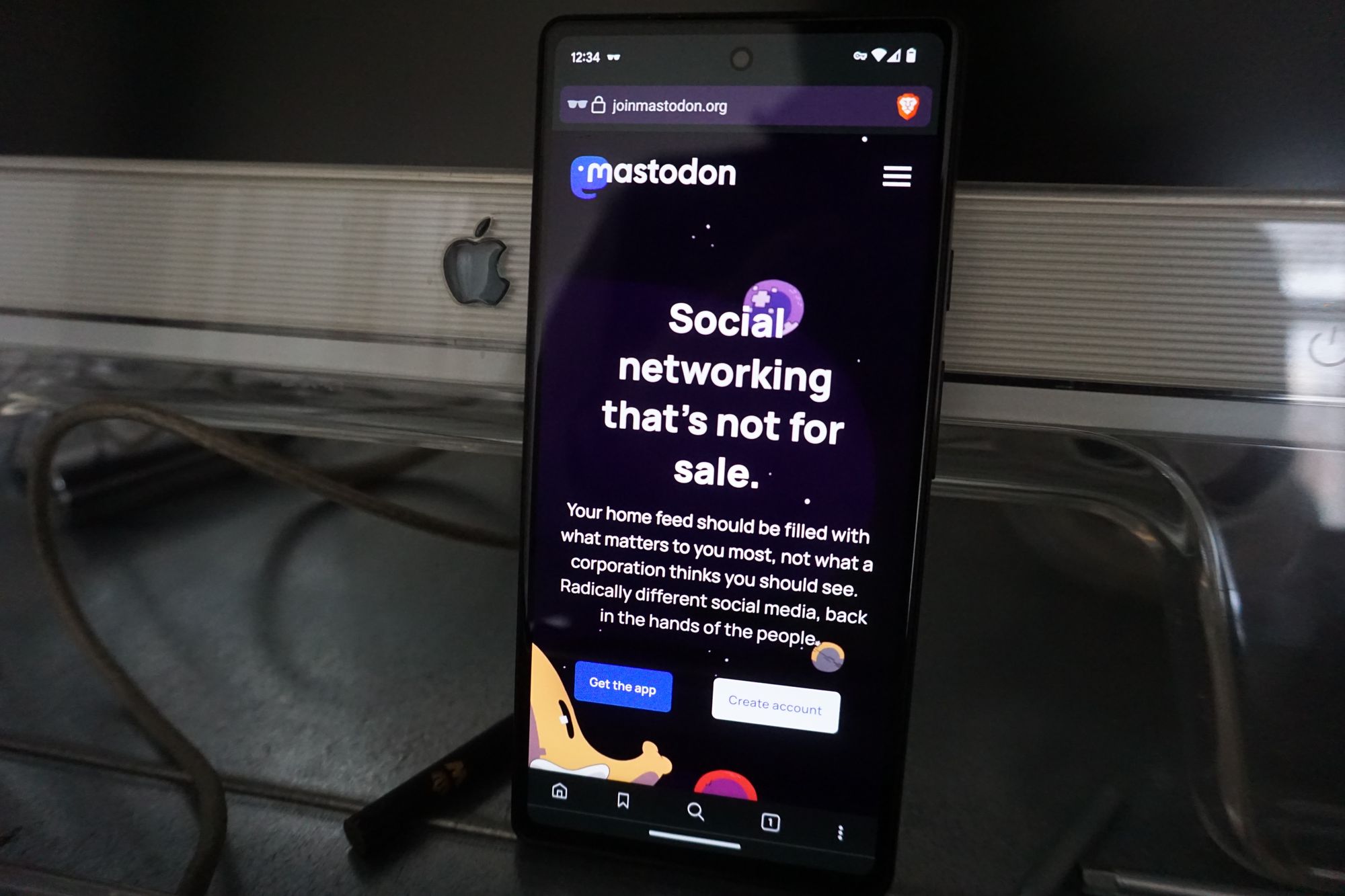Threads: Twitter's Heir Apparent
As I suggested last November, it now looks pretty certain that Twitter will indeed be the next major tech collapse.

It's not often I can point back to a previous article on here and say, "Well, I called it!"
As I suggested last November, it now looks pretty certain that Twitter will indeed be the next major tech collapse.
Sensing vulnerability at the microblogging service, prolific data harvester Mark Zuckerberg pounced. Having been working on a Twitter clone for some time, the introduction of rate-limiting at Twitter last week prompted the team at Meta to spring into action and move up the timetable for their launch.
Through a combination of luck – namely Twitter setting fire to itself – and an ease of onboarding that left users at Mastodon kicking their pedal bins over in frustration, Threads raced to over 100 million users in just five days, breaking ChatGPT's record as the fastest platform to reach the milestone.
Obviously, Threads has had a significant head start here; they've been able to capitalise on the ability to import profile data and followers from individuals' Instagram accounts to give the platform a major leg-up in the early days. And whilst that might feel a bit like cheating, in practice it's precisely what anyone would do with that kind of data at your disposal. Most importantly, as Mastodon users who have to carefully pick their instance and build a profile upon sign-up know, the sign-up process for Threads is so quick you basically don't notice it happening.
With Twitter drowning under its own toxic weight, Mastodon still struggling with baked-in fediverse issues like (comparatively) complex onboarding and the lack of a slick app, and with Bluesky still invite-only, is Threads meteoric rise really that impressive?
As the footballing adage goes, 'you can only beat what's put in front of you', and on the face of it, Threads has done just that. Twitter's user base peaked last year at around 368 million monthly active users. If Threads – which is still unavailable in the entire European Union at time of writing – can harness just 20% of Instagram's 2 billion monthly active users, and throw some new ones in for good measure, then it will quickly dwarf Twitter at its peak.
"That's all well and good," I hear you cry, "But what about Meta?" True, it's hard to get away from the fact that Zuckerberg's Meta empire would end up controlling Facebook, Instagram, WhatsApp and – effectively – a new Twitter. That's a hell of a lot of control for one company to have over everyone's digital lives. Plus, it's not as though Meta have historically been particularly responsible in safeguarding everyone's privacy.
This moral dilemma isn't straightforward. It's true that Meta has a chequered past with privacy, and ultimately we should be extremely wary of what we share with them and what we view on their platforms. However, when compared to the total hellscape full of bots, racists and extremists that now inhabit the smouldering carcass of Twitter, Meta's moderation policies seem like a relative utopia.

It's also still unclear how seriously Meta takes their responsibility as the now-largest entity in the fediverse. Although built on the ActivityPub protocol, which would allow Threads to interact with Mastodon and other platforms, it does not support this at launch. This has led to fears that Meta will perform an "Embrace, extend, and extinguish" manoeuvre on the ActivityPub protocol, effectively seizing control of it. Whilst in practice, it would be very difficult to actually take full control of the protocol, they could easily dwarf everything else on it to such an extent that the other apps and platforms become effectively meaningless. ActivityPub would become synonymous with Threads, and whatever Threads choose to develop.
With that in mind, it's interesting that Meta chose to develop Threads on ActivityPub at all. In five days, it's grown to dwarf Mastodon ten times over. It doesn't make use of any Fediverse features at time of launch. If you achieve that level of sign-up without actually using defederated technology, why bother putting it on there in the first place?
Instagram claim that their plan is for Threads to talk to other servers that support the protocol. They claim that their vision is that threads will communicate with people on other fediverse platforms that Meta has no ownership or control over.

Adam Mosseri, Head of Instagram, hasn't shied away from bigging up the benefits of the fediverse for the end-user this week. Speaking about support for ActivityPub, he promised it was coming:
"If you’re wondering why this matters, here’s a reason: you may one day end up leaving Threads, or, hopefully not, end up de-platformed. If that ever happens, you should be able to take your audience with you to another server. Being open can enable that.”
Whether that becomes a reality remains to be seen.
What has already become reality is the fact that there's a new player in the social media scene. Threads' launch is not something that can be ignored. The sheer number of users – but also the fact that a large number of celebrities, journalists and press organisations – who have already registered and seamlessly added it into their content dissemination strategy is truly impressive. That the platform did so without suffering technical outages or downtime – despite supposedly far exceeding their own launch targets – is equally noteworthy, although not unexpected for a company with the resources that Meta possess. Regardless, it would not be hyperbolic to say that we have never seen a launch on this scale deploy with such success.
It is an indication of just how successful the launch has been that Elon Musk quickly launched a pretty dubious legal counterattack, sending a legal letter accusing Meta of hiring ex-Twitter staff to deploy on Threads development – a charge that Meta has denied, stating "that's just not a thing."

Somewhere in Silicon Valley, Elon Musk is sat cradling a whisky, muttering incoherently about Twitter Blue, APIs and useless staff. However arrogant and cocksure he is – expect a lot of bravado spewing out from his Twitter account in the coming weeks – Threads is bad news for him and his platform. He has single-handedly damaged the network on which he spent $44 billion to the point where it faces a genuine existential threat for the first time in its history: a threat that never would have existed had he not felt the need to try and prove himself as some kind of reclusive genius. He can prattle on about cage-fights and tweeting inane drivel as much as he likes, but the signs are ominous: Twitter is dying.


